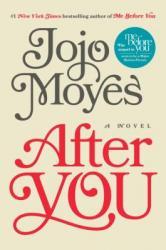
It’s been 2 years since Will Traynor’s death. Louisa Clark traveled for a while, but now she is stuck in a bad job and just treading water. Even surviving a fall from the rooftop of her apartment building doesn’t shock Louisa into wanting to experience more of life. Louisa joins a support group to deal with her grief and develops a relationship with the paramedic who saved her. However, it’s the arrival of teenage girl with a link to Louisa’s past that sets her life into a spin and changes it in more ways than she could ever have imagined. After You, Jojo Moyes’ sequel to Me Before You, is a well-written, realistic look at dealing with grief and all the curves life throws at a person. Fans of the first book will feel like they are catching up with an old friend. Be prepared to cry and laugh out loud as you spend more time with this loveable character.
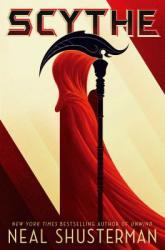
In 2041, what we currently call "the cloud" morphed into a version of AI called "the Thundercloud" that was able to solve all of the world's problems. Death has been basically eliminated - all manner of illness and injury can be cured, and pain is a thing of the past. Thundercloud stops the effects of global warming, and calculates how to best use the world's resources so that no one goes hungry. It's also made government completely irrelevant. However, to stop overpopulation, people called Scythes have to glean, or permanently kill, random members of the population. Scythe follows two teens, Citra and Rowan, as they reluctantly apprentice to become a Scythe.
I think Shusterman has another "Unwind" type of hit on his hands. As the book develops, the seemingly Utopian society gets darker and darker and more dystopian - but really only because of the gleaning. The Scythes have a rich history, and it was interesting to learn about them and their different approaches to gleaning. The book is absolutely at its best when examining humanity and the moral obligations and quandaries that come along with being a scythe - I ended up reading the occasional sentence out loud to my partner, which is something to which I rarely subject him. The ethical implications of gleaning are pretty huge, and the examination of killing and its purpose are what really makes the book a fun read. Also, no surprises here, Shusterman, a National Book Award winner, can WRITE.
I did feel that the book had some premise issues. As the book explains it, your chances of being gleaned, or even knowing someone who has been gleaned, are pretty rare. So why is gleaning even necessary? The book addresses this, but the answer was not satisfactory. I can also easily think of solutions to this problem that don't involve random killing. For example, why not impose some sort of birth limit (people have dozens of children in this version of the future)? Or maybe only those that have children are eligible for gleaning? Or maybe you only get "9 lives". The tenth time you die, it's for real. There wouldn't have been a book without the gleaning, but the book also never managed to convince me that gleaning was a thing that actually needed to happen. I also found it terribly convenient/nonsensical that the Scythes were the only group of people that operated outside of Thundercloud. Like, why? Thundercloud literally solved ALL of humanity's/the earth's problems, but this, life and death, one of the arguably most important problems, we're going to leave up to humans? Mmmmmmmmmmk. Oh, and then Citra and Rowan are eventually pitted against each other, and the rationale as to why makes absolutely no sense. Especially after a certain event transpires, and they STILL are in a fight to the death. It doesn't seem consistent with the rest of the world-building; it felt like a contrived (and unsuccessful) plot device.
Premise problems aside, I really did enjoy the book. If you like near future books, dystopians or ethics, it's definitely worth a read. 3.5 stars.
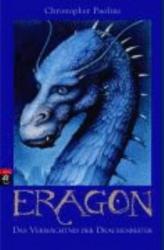
Eragon is a small farm boy living in a small corner of the vast country of Alagaesia. His family having little wealth, Eragon roams the woods in search of anything worth selling, and one day he finds a strange blue stone in the middle of some wreckage. Hoping he can sell it for money, he takes it back to his Uncle Garrow and cousin Roran. Unfortunately, no one buys the stone and Eragon is in possession of the stone for good. However, one night the stone hatches and a baby dragon emerges from the stone. Eragon is frightened at first, but when he pets the dragon the two establish a mental connection, he is now its owner. He names the blue Dragon Saphira and he hides her in the woods, secretly training and raising her. Expectedly, two men come to the town asking of the dragon, so Eragon and Saphira fly away, as if in exile.
Returning to town, Eragon finds that the village is destroyed and his Uncle dead. The town storyteller, named Brom, tells Eragon that the two men were called the Ra’zac and they work for the King of the land, Galbatorix.
Together Brom, Saphira, and Eragon set out to find the Ra’zac and seek revenge, as well as restore peace to Alagaesia. I really enjoyed this book and recommend it to fantasy genre readers, but it’s a good starter for anyone wanting to get into fantasy books.
Grade: 11
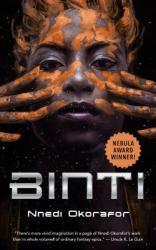
This was a fun little sci-fi novella. Binti is about a Himba girl from Earth -- the eponymous Binti -- who is accepted into a super-prestigious university and becomes the first Himba to go off-planet to attend college. There's a lot of prejudice against Himba by the Khoush on Earth, so Binti is nervous about traveling outside of her homeland, but when she gets on a shuttle with fellow students they find they have their love of science and astronomy in common, and she begins to feel optimistic about attending Oomza University. However, part-way into the journey the Meduse, a type of alien in a long war against the Khoush, attack the ship at dinnertime and kill all the students -- except for Binti. She’s not exactly sure why, but it seems to have something to do with a mysterious artifact she found in the desert that she keeps as a good-luck charm. Binti hides in her room, but she fears it will only be a matter of time until the Meduse kill her; she might not be Khoush, but she's a human on a Khoush ship, and that's enough. What seemed like the beginning of an exciting new life now is going to end just days after her departure.
I listened to Binti as an audiobook, and the narrator did a wonderful job with the story. I enjoyed Binti’s perspective and was drawn in by the back-story of their world -- the astrolabe technology everyone seems to use, Binti’s skill as a Harmonizer, living space-ships, and many other intriguing details. It’s extremely short -- just 90 pages -- and at the end I definitely wanted more information about the world and its people and technology. On the one hand, it’s good that Okorafor made me care enough to be interested in hearing more, but the tradeoff was that book felt a bit rushed/cramped at times. There are novellas that work perfectly in that form and are paced so well that they’re as rich and complete as a full-length novels, but this one didn’t quite meet those standards. This is intended to be the first book in a series, so I'm cutting it some slack for that reason, but it still didn't quite work on its own. The message was strong, but there were plot points I would have loved to see explored in more depth, relationships I wish had been better fleshed out, and some finer details of the setting that I wish Okorafor could have delved into to make for a more satisfactory ending. I still enjoyed the story for what it was, and I'll be looking out for the next entry in the series, but it fell a bit short of what I wanted. That being said, it's a creative story with a very cool setting, and I would certainly recommend Binti to fellow sci-fi fans.
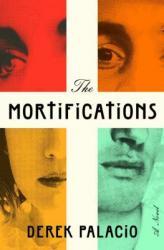
The Mortifications follows the Encarnacion family from Cuba to Connecticut and then back to Cuba again. Soledad's husband, Uxbal, is heavily involved in rebel groups resisting Castro's regime. She doesn't want her children growing up in that environment, and eventually she decides to take them and leave for America without her husband. Uxbal tries to hold her daughter Isabel captive, but she threatens to cut his son's throat if he doesn't let her take both their children. They escape successfully, but the incident leaves deep scars on everyone in the family. Soledad eventually begins a new relationship with Henri Willems, a Dutch man trying to cultivate Cuban tobacco in the US, and all the while she and her children drift further and further apart from one another as they try to adjust to their new lives.
The Mortifications is a leisurely-paced book and it draws rich portraits of all the characters: Soledad, who takes her children from Cuba to America to protect them but finds herself haunted by a lost marriage and country; Isabel, who took a vow to her father to remain chaste until she could have rebel children for his militia, and who later joins a convent in an effort to keep this vow; Ulises, a student of classical literature who feels abandoned by his mother, father, and sister alike; Willems, who is haunted by the idea that his tobacco holds the ghosts of the slaves his family once owned in Haiti; and many more minor characters who are written with equal depth and sympathy. It was a genuine pleasure to read -- beautiful writing, very introspective, and with enough humor to keep it from being too relentlessly depressing. That being said, it's a very (and I mean very) slow-paced book and is focused more on the internal lives of the characters than any cohesive plot, so that might be frustrating to readers looking for something with a little more structure. I would give it 3.5 stars, in large part because the writing was absolutely gorgeous.
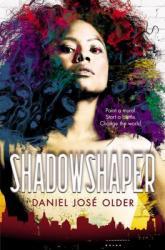
Sierra Santiago is looking forward to the perfect summer. Class is finally out, she has a close group of friends to hang out and party with, and best of all she has the perfect summer gig: painting murals on the walls of old buildings in Brooklyn. But when she starts work on her first mural, she notices something strange going on with the other paintings around her. For one thing, they’re fading way faster than normal, and for another – well, it almost seems like they’re moving. Most confusing of all, when she gets home her grandfather – who hasn’t spoken since his stroke – suddenly wakes up and starts speaking directly to her: she HAS to finish the mural she’s painting, he says, and she needs to do it as fast as possible – before it’s too late. Sierra is thrown. What could a giant picture of a dragon have to with anything? And what does her grandfather mean about time running out? He leaves her with a riddle about a missing woman and more questions than answers.
Most infuriating of all, everyone in her family seems to know exactly what’s going on – but no one will tell her. Her mother even gets angry with her when she tries to ask about the connection between her grandfather and the murals. Something about the subject is just too dangerous to discuss. At first this seems ridiculous to her, but when she goes to a party with a group of her friends suddenly the danger is all too real. A zombie crashes the party and heads straight for her. Sierra is in shock, but Robbie, the quiet, artistic boy from her class that she’s been chatting with, knows what it is – and knows Sierra’s grandfather, too. Sierra escapes, but it’s a close call, and her problems are only just beginning.
Afraid and more confused than ever, she decides to go to the best place for research: the library. While she’s there, she discovers that an anthropologist, the mysterious Dr. Wick, was studying her grandfather and his group of friends just before he had a stroke and everything went wrong. Dr. Wick was researching a power called shadowshaping: the ability to imbue ancestral spirits into their artwork, whether it’s storytelling, music, or, you guessed it, painting murals. Sierra’s starting to put together the pieces, but time is running out – the murals are fading faster than ever and her grandfather’s group of friends, the shadowshapers, are dying one by one. Sure, they’re elderly men, and there’s not a mark on their bodies, but it can’t just be a coincidence, can it? And what about Dr. Wick – he went missing at the same time as her grandfather's a stroke, but is he a victim or a killer? Sierra sets out with Robbie and her group of friends in search of answers. Along the way, she’ll face the walking dead, living paintings, and her family’s tangled past.
I love fantasy, and this had such a unique premise that I had to pick it up, but sadly it fell far short of my expectations. First, the good: the magic system is very original and a lot of fun to read about; the idea of imbuing artwork with ancestral spirits is already interesting, but having murals and chalk drawings come to life to dance and fight and interact with the world made for great reading and some really cool action scenes. In addition, the cast is very diverse in terms of both race and sexuality, and Sierra’s budding relationship with Robbie felt natural rather than forced (and I say that as someone who usually hates romance in YA, but it was very subtle and actually rather sweet). Unfortunately, none of this could save the book from its biggest problem: the pacing. Usually I’m complaining about books that are bloated with filler, but this one had the opposite problem: way too many ideas, not enough space. In just 280 pages, there wasn’t enough room to develop all of the world-building and plot and character development that could have made this book great. As a result, it’s very uneven, and there’s no room for the plot to breathe; the book jumps around a lot from plot point to plot point, and most of the interactions between characters are, quite frankly, bizarre. Older forces awkward conversations that seemed designed to cram in as much background detail as possible before ending abruptly mid-stream so that Sierra can get to the next scene. It’s as if he’s written a check list of everything Sierra needs to do and he’s decided to follow it doggedly regardless of whether or not it flows. Details are introduced but then never followed up on or resolved in any way.
This is compounded by a second problem: the writing just isn’t very good. Part of that is just the book being aimed at a younger audience, and that aspect doesn’t bother me, but another part is awkward transitions between scenes, ham-fisted dialogue, and way too many editing errors for such a short read. These problems together made it honestly quite painful to get through, especially in the rushed beginning chapters when you can see Older trying to get to the main plot as quickly as possible at the expense of everything else. Basically, good idea, poor execution. I would give it 2.5 stars. I still think this has appeal for teens who love urban fantasy or who are looking for something different and original to read, but I wouldn’t call it good by any stretch of the imagination.
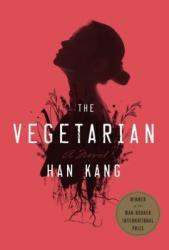
In this inventive South Korean novel (based on an earlier short story by the author), a woman decides to become a vegetarian after a disturbing, blood-soaked dream leaves her convinced that she needs to purify herself. Yeong-hye remains largely a mystery to us throughout the novel -- we hear about the situation mainly from her husband, brother-in-law, and sister, and they're often more interested in what they want from her (passivity, "normal" behavior, sexual gratification) than in understanding what's happening inside her mind. It's interesting to watch the escalation of behavior that's considered inappropriate; even the most mild changes to her routine provoke violent reactions and eventually lead her family members to cross lines of their own. At first, not eating meat alone is shocking and indicative of disrespect for her husband, then a refusal to wear a bra, then a discomfort with speaking -- and the gap widens more and more between Yeong-hye and the people around her as she withdraws from the world in her obsession with becoming more plant than animal.
Still, despite the oddity of the premise, it reads more like horror than comedy, and there was some real emotional weight to Yeong-hye's problems and to the exploration of the internal lives of her family as they react to her rebellion in increasingly bizarre ways. I liked the first section (dealing with the destruction of Yeong-hye's marriage) more than others, but they were all fascinating, and the sister's perspective helped bring things to a satisfying conclusion. Some parts were a bit too on the nose for my taste, but it was an engrossing read overall. There was a lot of reflection on the position and treatment of women in modern-day South Korea, which may interest some readers, as well as a more general look at the everyday violence around us, people's inner desires, and the pressure to conform. (I'd give this 3.5 stars if I could, but I rounded up because the writing deserved it.)
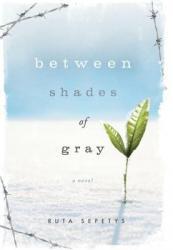
Review: This is the one of best historical fiction books I've ever read. Most historical fictions get their facts wrong, but this book had accurate details and the writer manages to get a good story into it. I absolutely loved the plot and the different kind of character's. The only problem with it is after all that detail throughout the book, at the end it kind of just drops off a cliff. It had a unique ending, I just wish it had more explanation to it.
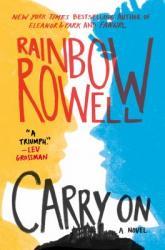
Rainbow Rowell's "Carry On" had me laughing and tearing up and cheering along the protagonists like a crazy person, which -- as I listened to the audiobook in my car -- I'm hoping didn't concern my fellow drivers. This book is not only a clever love letter to the Harry Potter universe/the concept of a "chosen one" narrative, it's one of the cutest teen fiction romances I've read in a long time. I'm going to try not to spoil anything, which is why this review is so very, very short, but... Awww. What a simultaneously goofy and emotional book.
As you may or may not know, "Carry On" takes place in the universe Cath is fangirl-ing over in Rowell's other novel, "Fangirl," but I'd say it works very well as its own independent story. You could read it as a set with "Fangirl," or just read it for its own sake, I imagine both ways are fun and interesting for different reasons.
Categories: Teen Fantasy, Just Plain (?) Fantasy (if you love the Harry Potter books, this is kind of intended for you, I think, regardless of age), GLBTQ Fiction, Humor (?), Romance, Satire/Reinterpretation

I don't recommend this book to anyone completely stressed out. Amy Poehler is crazy busy and manic in her daily life. That's fine for her, but I was reading it during a stressful/manic period of my life and it wigged me out. Although it's a bit scatterbrained, it is a good book about her life with some very famous improv groups and tv shows.
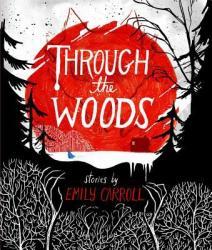
“Through the Woods” by Emily Carroll is a comic book collection of whimsically morbid fairy-tales, each mostly self-contained but serving what I would call an important, human theme: the uncanny waits, and surrounds, especially where you wouldn’t expect it. I love the stark yet evocative art throughout this book, and some of the stories did manage to surprise me. I personally love testaments to the monsters under our beds, particularly those intended for adults, and if you do, too, you may carry something interesting away from this collection. At any rate, the art is gorgeous, feeling “classic” even as it’s so unique.
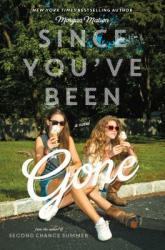
Review: A friend of mine recommended this book to me and she is a big reader so I thought it would be good. Boy was I wrong. Right from the start this book was very slow. It went into immense detail and showed the main character's every thought. Some people may like this, but I though it made the book boring. About halfway through the story started to pick up a little.
I was actually interested in finding out where the best friend had gone, with was the only reason I kept reading it. The whole book revolved around finding the main character's(Emily) best friend. Emily went on a spectacular goose chase looking for her friend and I was expecting just as a spectacular ending to it. But alas, the best friends return was as boring as it gets. I would have given this book a higher rating if it had a better ending. Overall I did not love this book and I wouldn't recommend it.
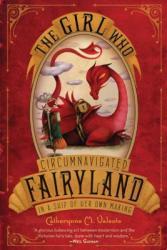
I've yet to read something by Catherynne M. Valente that isn't absolutely gorgeous -- admittedly I may be a little bit biased, as I definitely think folkloric stories are the best, and folkloric stories with lovely playful twists are the BEST best... But when it comes to evocative and clever prose, as far as I'm concerned Valente is on a level all her own. At the moment, I happen to be reading her "Fairyland" series, and so... Behold, the first book -- "The Girl who Circumnavigated Fairyland in a Ship of her Own Making!" It's just as whimsical as it sounds.
So there's this little girl named September, living in a lonely house and washing a bunch of lonely teacups all the time and feeling very trapped. A quirky and talkative Green Wind -- apparently a defiant and spirited sort of wind -- riding a leopard shows up to spirit her away to Fairyland if she likes. This book is very much like "Alice's Adventures in Wonderland" for the modern age: September has loads more authority over herself and her destiny, for one, and she grows dramatically as a human being over the course of the series. Fairyland helps that along of course, despite being a wild and alien place, complete with folkloric and/or mythological figures both eternal and re-imagined, petulant tyrants with very impressive hats, and interesting twists and turns aplenty that I can say I definitely didn't see coming. Valente's world is simultaneously familiar and wonderfully fresh, like she's composed words to go along to the tune of a well-beloved song, shifting its meaning in unexpected ways while still keeping true to the soul of something timeless.
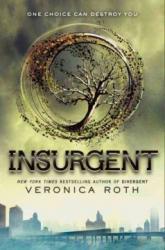
This book is about Tris and Tobias trying to stop Erudite. There's a lot of tension between friends and family as the dauntless splits in half. Traitors side with Erudite and the rest take refuge at Candor headquarters. Jeanine Mathews results to murder as she starts to kill dauntless every two days that go by without a divergent turning themselves in. There is definitely a lot of internal struggles with Tris as she tries to overcome her grief with the death of her parents and Will. Her and Tobias have some conflict too as they try to come to an agreement with how to handle the Erudite situation.
Reviewer Grade: 8
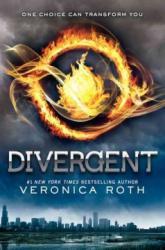
I loved this book! It is way better than the movie. It is about Beatrice Prior, a 16 year old girl. In her world there are 5 factions in which most everyone belongs. She is apart of abnegation, the selfless faction, but doesn't feel that she is selfless enough so she decides to switch to dauntless, the brave faction. The book is about how she has to over come her inner cowardice and pass initiation. If she does not pass then she becomes factionless and will spend the rest of her life homeless and begging for food. The only thing that is holding her back is that Tris is divergent and if your divergent in this society then you are basically as good as dead. She has to keep her secret a secret while also managing to remain in a safe place in initiation. It also has some romance as her instructor, Four, tries to help her become better at fighting. The book has a lot of action and keeps you on the edge of your seat through the whole thing.
Reviewer Grade: 8
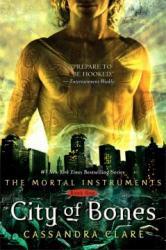
Clary Fray is a completely normal girl, except that she saw three people brutally kill someone. Not only did she witness a vicious killing, but somehow no one else can see it but her. Then suddenly her mother is kidnapped and she is attacked by a demon. Clary gets sucked into a world full of monsters and shadowhunters, an elite group of people tasked with protecting humans. In order to save her mother from Valentine, the man who wants to murder downworlders and innocent children, she must team up with Jace Wayland, a very talented and young shadowhunter. I could absolutely not put this book down!!There was so much action and just enough romance that this book will probably always be one of my favorite books ever! I definitely recommend it to anyone who enjoys fiction.
Reviewer Grade: 8
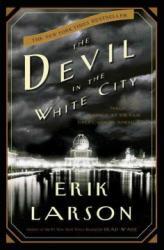
The Chicago World’s fair, also known as The World’s Columbian Exposition, was a world’s fair held in Chicago in 1893 meant to counter France’s world fair and give Chicago back its fame, and even though it was not yet completed when opened, it proved to be a phenomenal success. The Devil in the White City follows the life and story of two interesting men:
Daniel Hudson Burnham and H.H. Holmes. Burnham is the famous architect who directed the construction of the fair and Holmes was a psychotic, but genius and seductive, serial killer who used the World’s fair to lure his victims, almost always women, to their death. Although their lives different, their stories and accomplishments are intertwined and connected, which Larson seeks to condense. With a meager three years to build the fair, and setbacks such as the death of his partner, weather, and health issues, Burnham struggles to finish the fair on time, more or less make it better than France’s.
Meanwhile, Holmes uses his persuading words and charms to commit fraud, acquire debts he never plans to pay back, and worst of all be able to kill and dispose of human bodies with ease. Burnham’s and Holme’s stories never connect in the beginning, and they never meet each other, but as Larson explores the events of 1890-1893, the connection between them becomes clear.
Reviewer Grade: 10
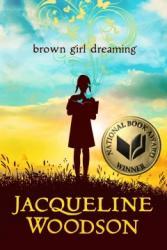
This poem book is really well written. It has a unique poem style with just as a unique narrator. This book is about a girl named Jackie growing up in the 1960's-1970's. She has to deal with the hardships of not being treated well because of her skin color along with other things going on in her personal life. The author of this book did a really good job at putting these dilemmas that Jackie faces in the mind of a little girl. I would have rated this book 5 stars if it wasn't so dry in the middle. You get sucked in right from the start but then in the middle of the book, it gets a little boring. But don't give up on it, it picks up later on and has a fantastic ending.
Reviewer Grade: 8
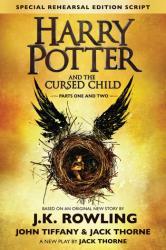
SPOILER ALERT! I thoroughly enjoyed this book. I'm a huge Harry Potter fan, so of course I dug getting to learn more about Harry and his friends. I was very interested in the Scorpius/Albus relationship but hoped there had been a bit more about Scorpius's relationship with his father. I was mildly annoyed that Draco and Harry became friends and even that Draco showed a sensitive side. However, I liked how devoted he was to his son, just like his mother had been so devoted to him. The final chapters with Harry bonding with Albus didn't interest me much either. But still a good read and a great fix for my Harry Potter withdrawals. I would like to see it as a play.
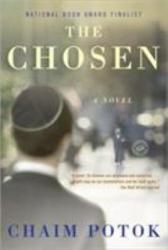
During a softball game in Brooklyn, New York in 1944 between two different Jewish sects, Danny Saunders hits the ball and smacks the pitcher, Reuven Malter, right in the face knocking him out. Reuven is sent to the hospital, and when Danny comes to visit him to apologize Reuven rejects his apology. Partly because he was mad at Danny, and partly because they were of a different sect.
Eventually, Reuven forgives Danny and they develop one of the strongest friendships ever seen. Unfortunately, Danny’s and Reuven’s fathers develop a dislike towards one another, and Mr. Saunders forbids Danny from associating with Reuven. Their friendship grows distant, but after almost a year or two it seems like, Danny is allowed to speak to Reuven and they begin to repatch their friendship. During their friendship, Reuven sees a lot of Danny’s life and he finds out that Danny doesn’t want to be a Rabbi, but his father wishes him to. This book is a phenomenal classic and tells the story of how two friends from different, hostile backgrounds are able to have a friendship as strong as Lewis and Clark. I recommend this novel to those interested in Jewish background, but it is a book that everyone can take something from.


